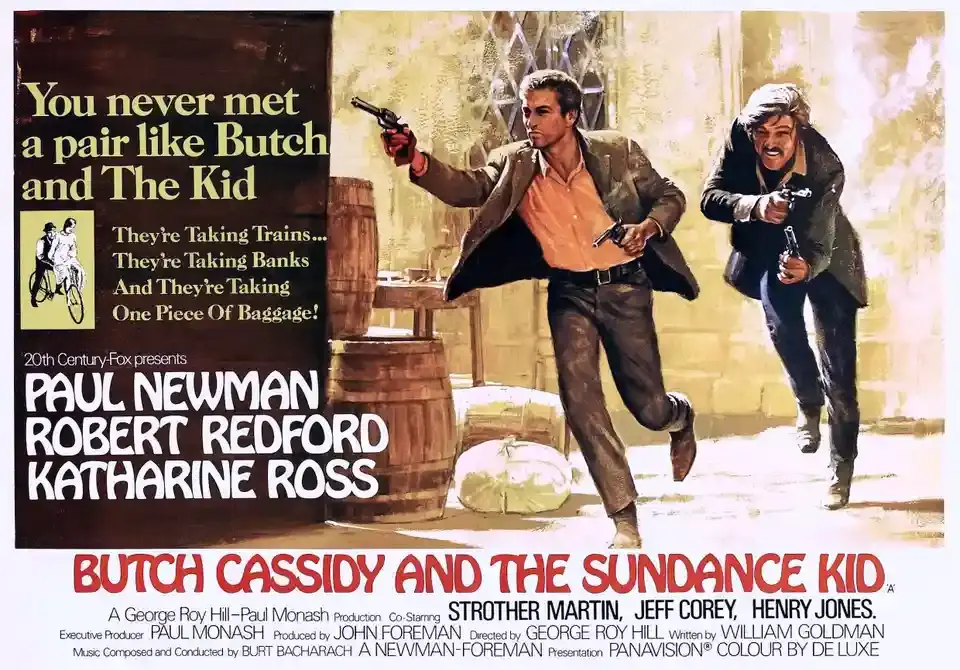An Era Ends: Remembering Robert Redford
- squint

- Sep 16, 2025
- 3 min read
On the morning of September 16, 2025, the world of cinema fell into a deep silence. Robert Redford, at the age of 89, passed away peacefully in his mountain home in Utah. A man who embodied art, political conscience, and a deep love for nature, Redford's departure marks more than the passing of a legendary actor — it signals the end of an era. From the golden age of Hollywood to the rise of independent cinema, Redford was not only a presence on screen but a transformative force behind it.

Beyond Stardom: A Charisma That Endured
Redford’s star first rose in the late 1960s with ‘Butch Cassidy and the Sundance Kid’, in which he co-starred with Paul Newman. That film became an emblem of friendship and the enduring magic of cinema. In the years that followed, Redford brought complexity and gravitas to roles in films like ‘The Sting’, ‘The Way We Were’, and ‘All the President’s Men’.
He wasn’t just the charming lead; his characters were often layered with inner turmoil, political consciousness, and moral conflict. With every role, Redford invited audiences to look beyond the surface, to engage with the soul of a changing America.

The Revolutionary Behind the Camera
Although he earned his fame in front of the camera, Robert Redford’s true legacy may lie behind it. His directorial debut, “Ordinary People” (1980), won him the Academy Award for Best Director — an early signal of his narrative power and emotional depth.
But his most lasting contribution was the creation of the “Sundance Institute” in 1981 and the “Sundance Film Festival”, which grew from a quiet experiment into one of the world’s most influential platforms for independent cinema. Through Sundance, Redford opened the door for new voices, unconventional stories, and bold filmmakers who might otherwise have been left unheard. Quentin Tarantino, Chloé Zhao, Ryan Coogler — many of today's visionaries began their journeys under the Sundance spotlight.

Where Art Meets Activism
Redford never saw art as separate from responsibility. Throughout his life, he was a passionate advocate for environmental protection, Indigenous rights, and freedom of speech. These values weren’t just reflected in his personal life — they deeply informed his choices in storytelling and production.
He was not a passive celebrity, but a conscious artist. His films often questioned power, explored injustice, and challenged the status quo. Redford used cinema not just to entertain, but to provoke thought, to spark change, and to bring attention to the world’s most pressing issues.

A Quiet Farewell, An Enduring Legacy
Redford’s passing was not marked by spectacle. It came quietly, in nature, surrounded by the people and the place he loved. But the silence of his death stands in stark contrast to the echo of his life. He leaves behind not only a body of timeless work, but a vibrant ecosystem of artists, stories, and institutions that carry his spirit forward.
He remains one of the few figures in American cinema who bridged commercial success and artistic integrity, glamour and grit, tradition and rebellion.

Robert Redford was more than a star. He was the conscience of cinema. His career — spanning acting, directing, producing, and cultural leadership — was marked by a relentless pursuit of something deeper, truer, and more meaningful.
Sometimes he was at the center of the crowd. Other times, alone in the mountains of Utah. But always, he was in service of cinema and humanity.
His passing may mark the end of a chapter, but it also calls us to carry forward the vision he championed — one of courage, authenticity, and purpose.
Robert Redford is no longer with us. But in every bold screenplay, in every honest frame, in every new voice breaking through the noise — he lives on.



